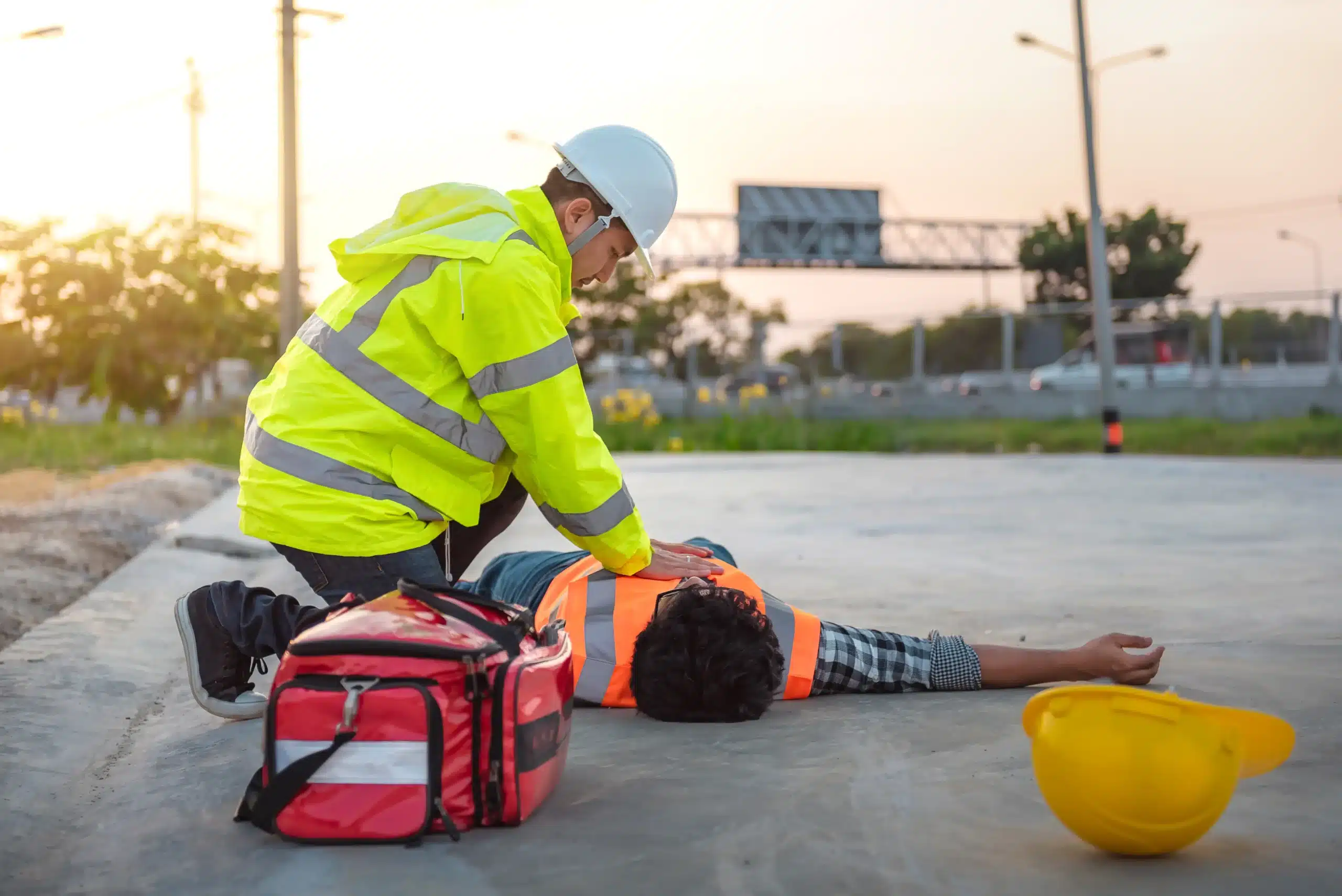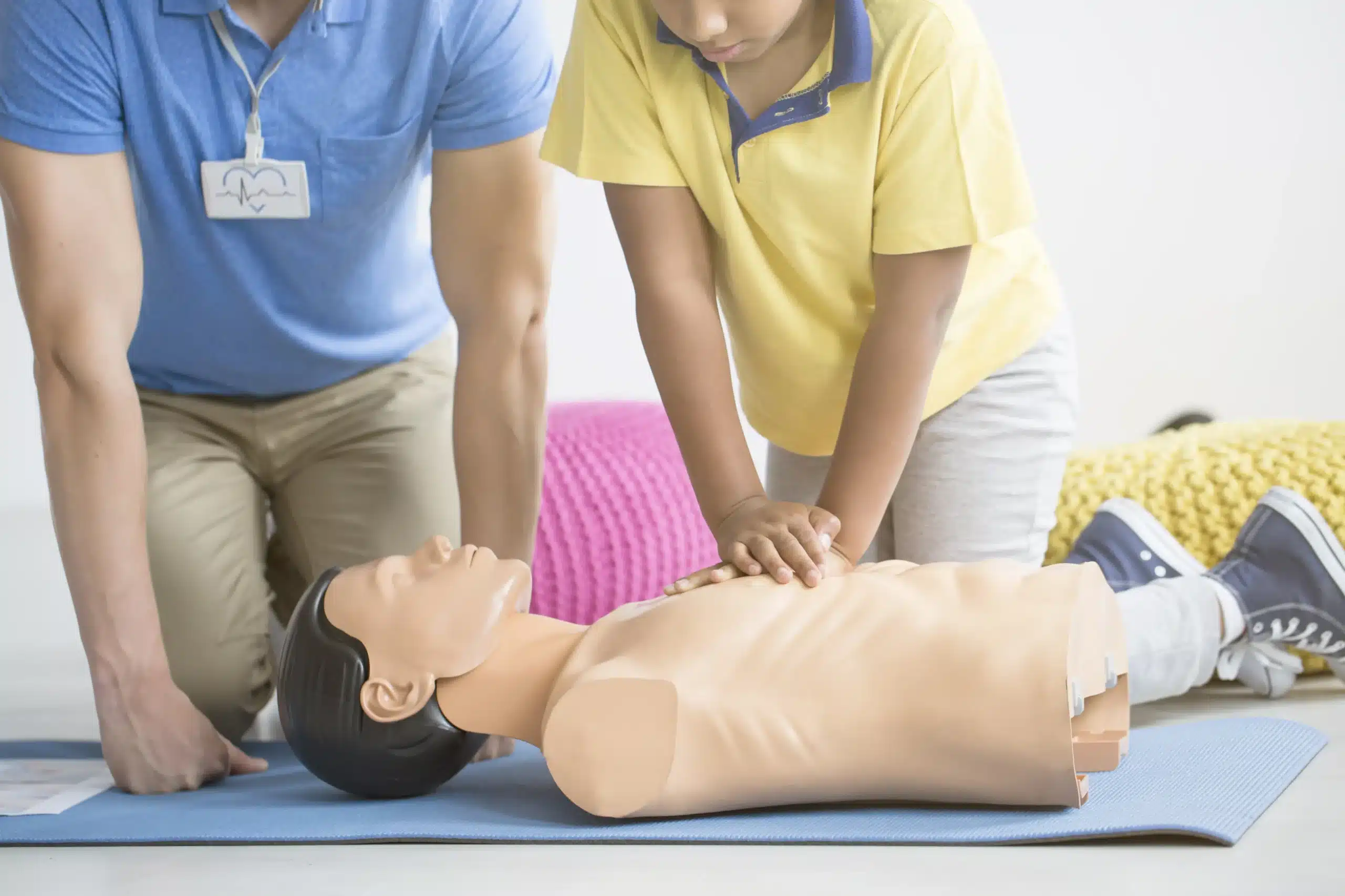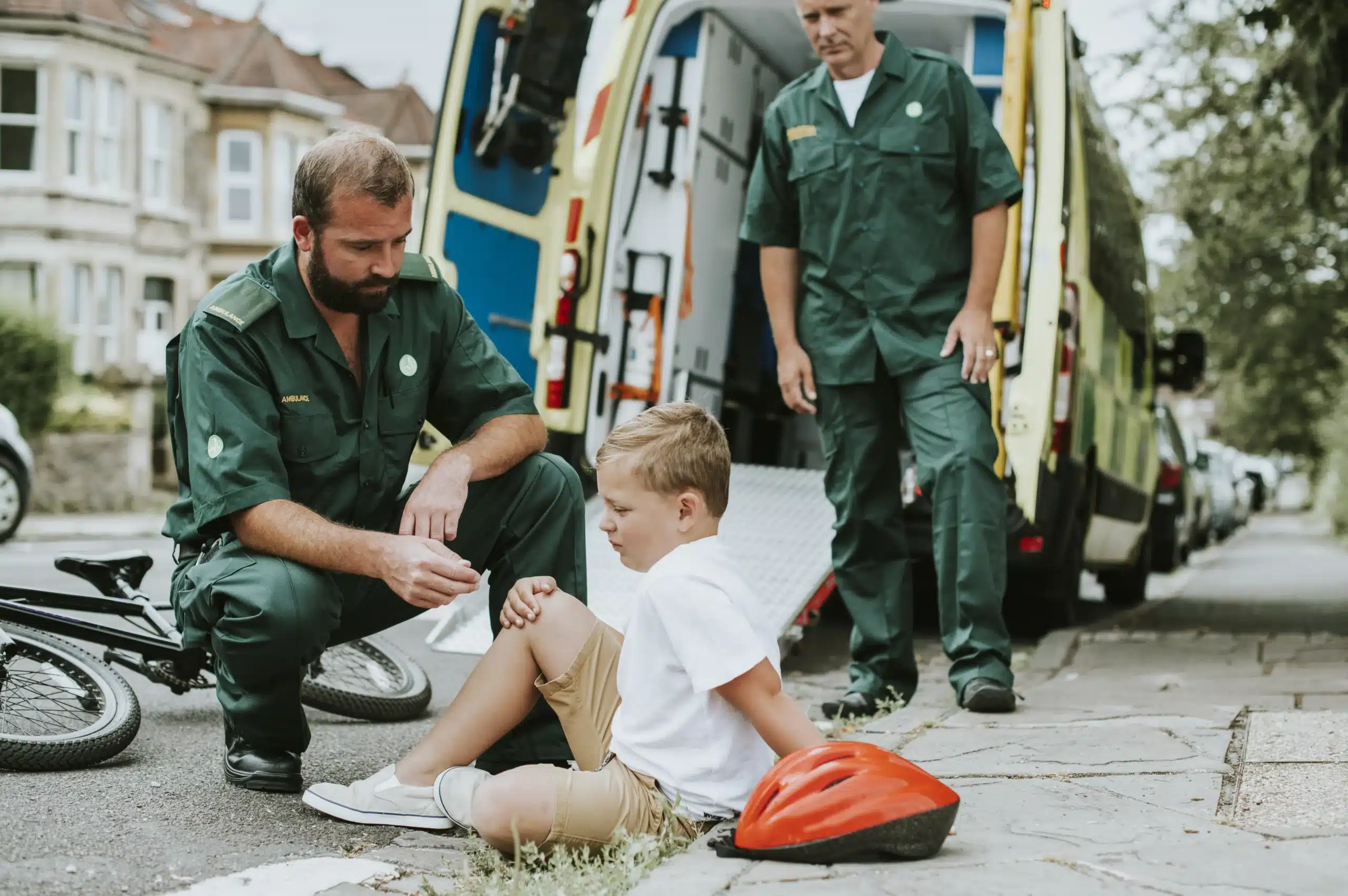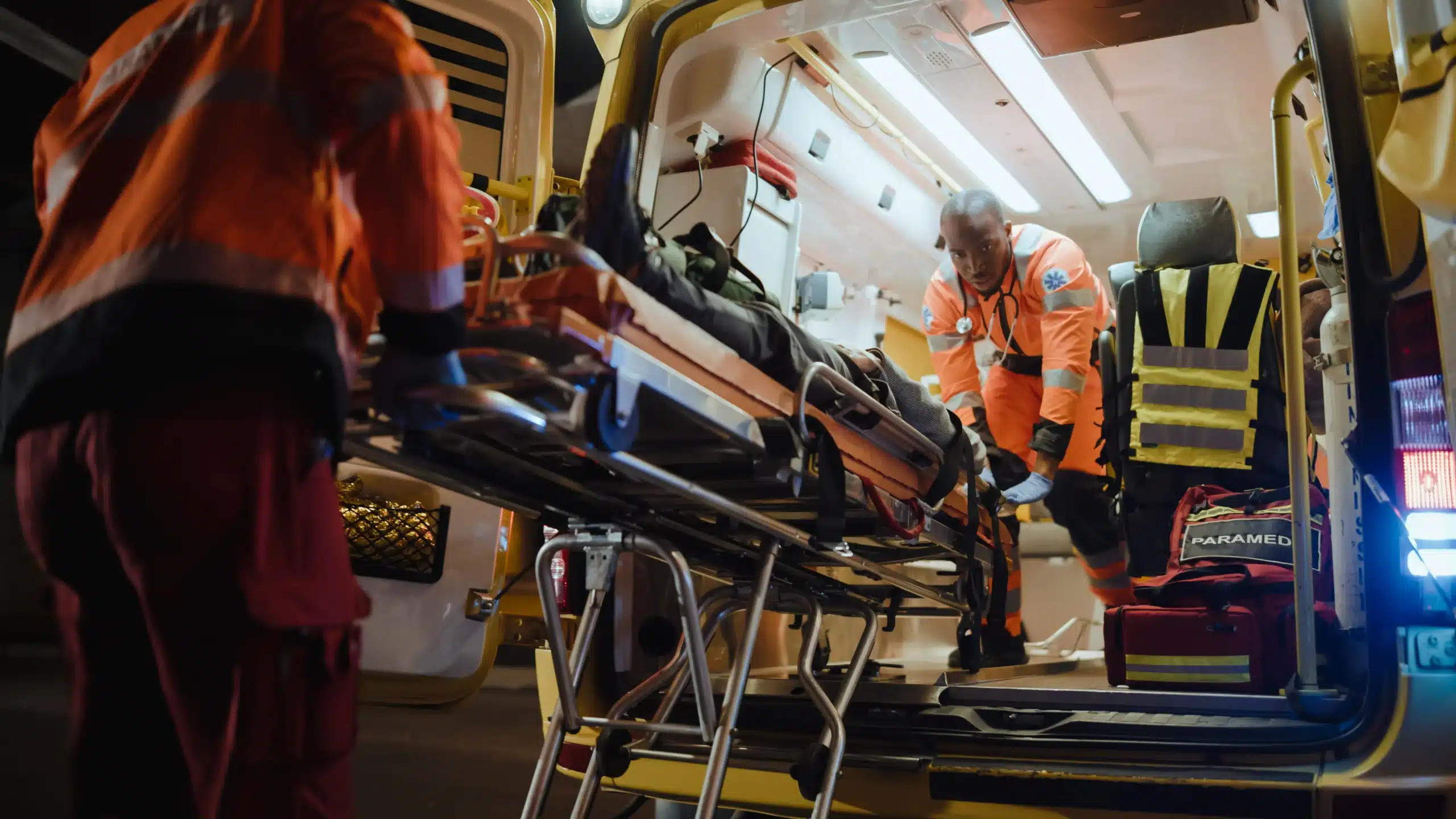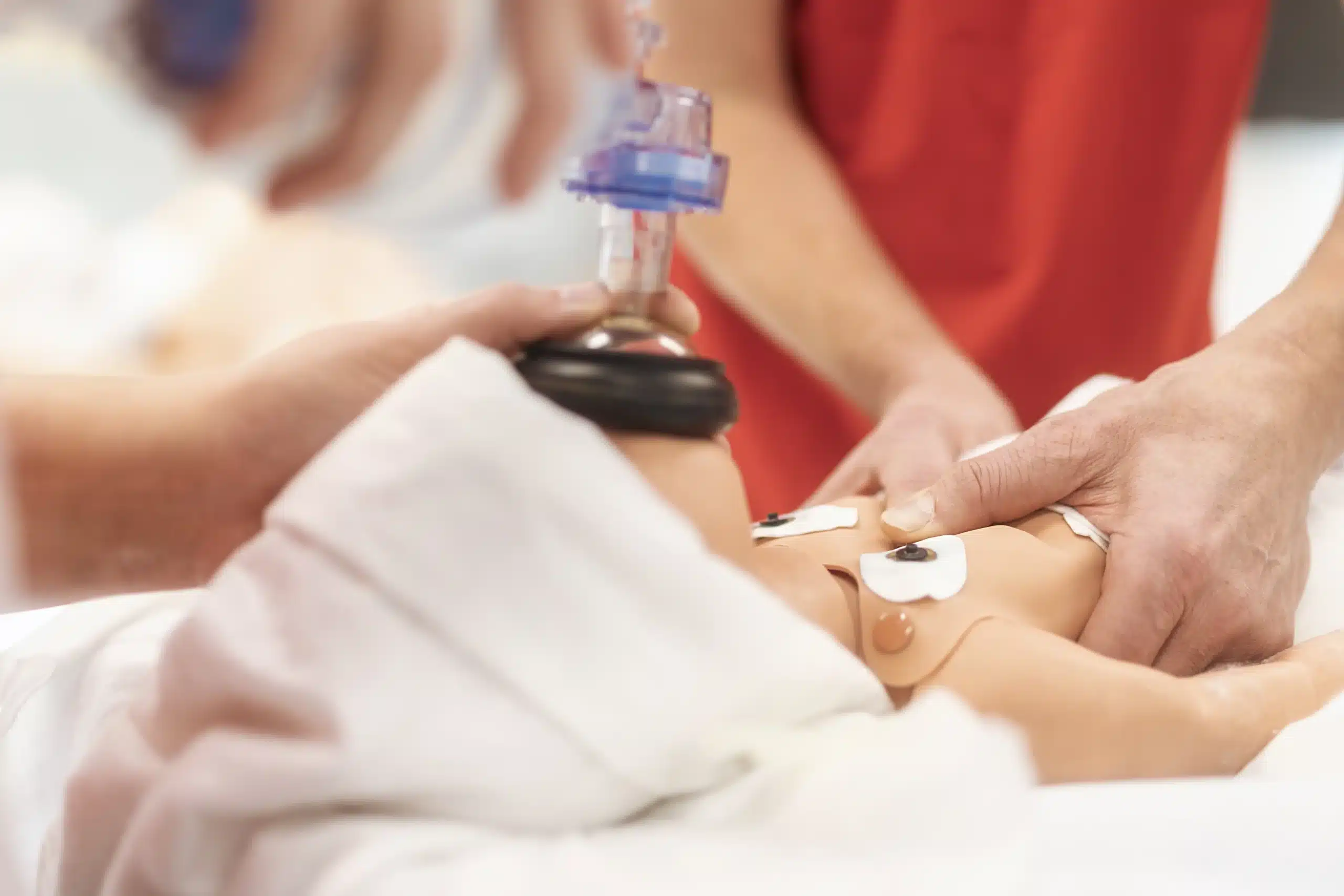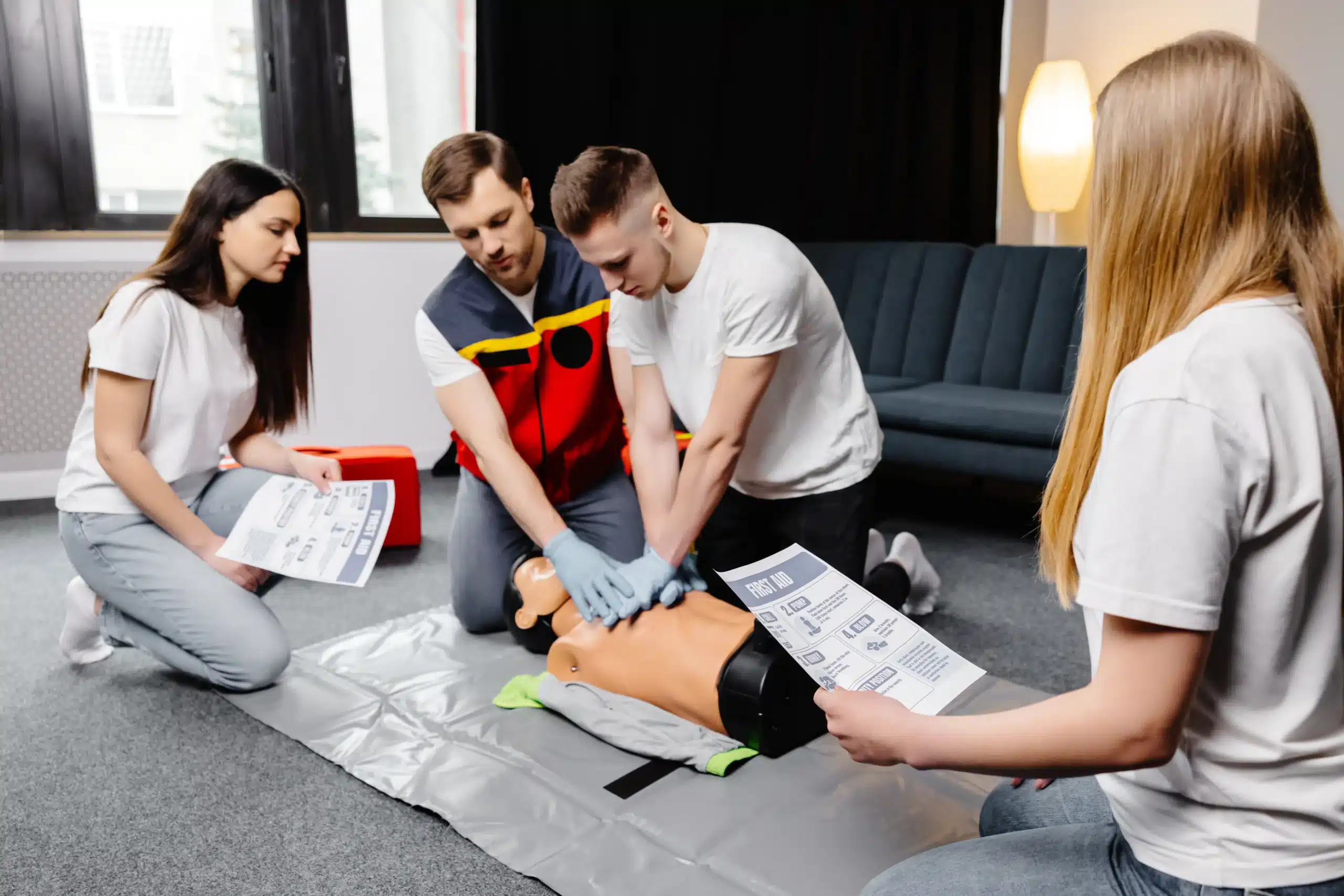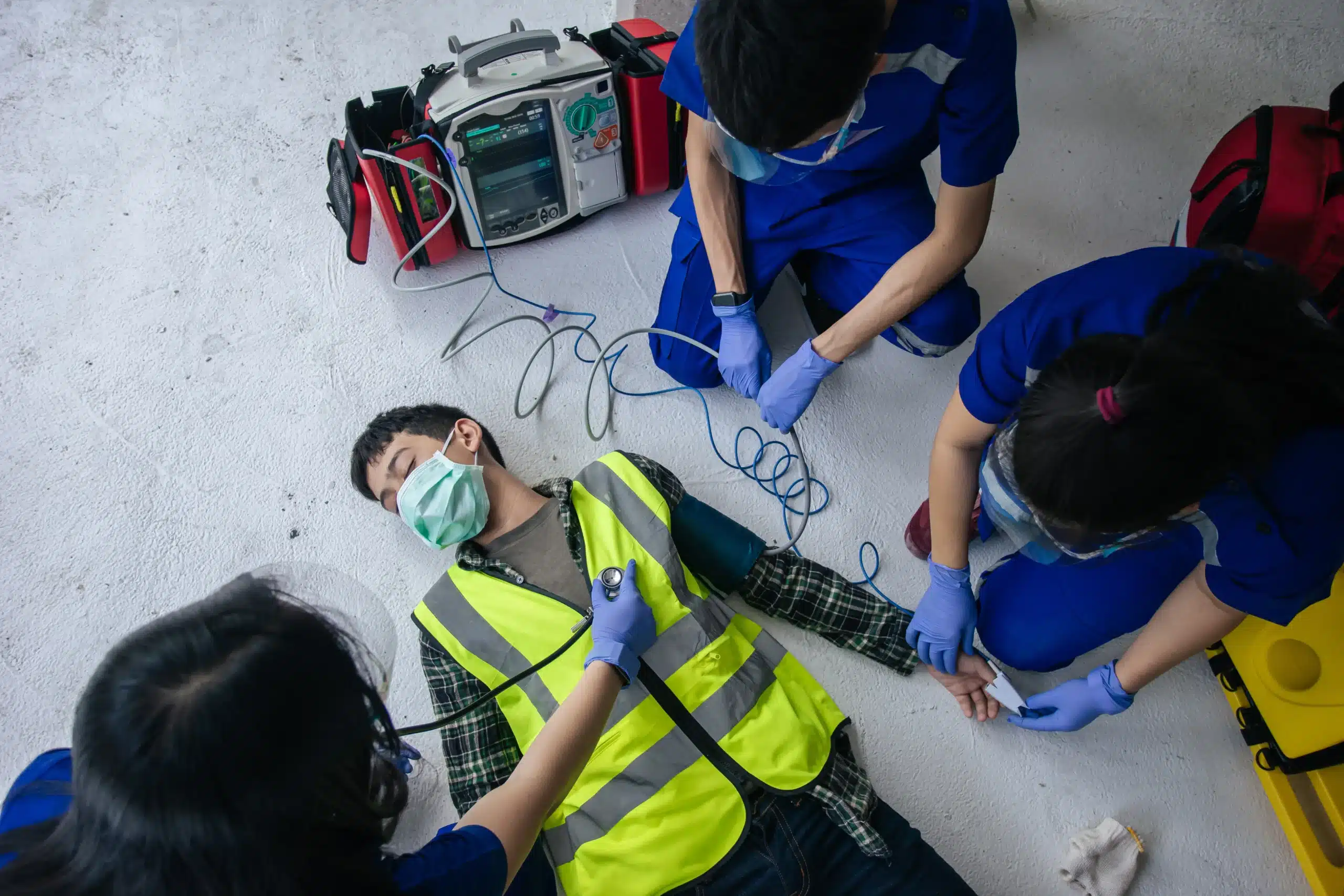Working in healthcare, especially with children, means being ready for anything. When seconds count, having the right training can make all the difference. That’s where Pediatric Advanced Life Support (PALS) certification comes in. This specialized training equips healthcare providers in Gilroy with the skills to handle pediatric emergencies confidently. This post explores everything you need to know about PALS certification in Gilroy, from understanding the core concepts to finding the right course for your needs. We’ll cover the benefits of PALS training, what to expect during the course, and how to maintain your certification. Whether you’re a seasoned professional or just starting your healthcare career, this guide will help you understand the importance of pediatric advanced life support in Gilroy and how it can empower you to provide the best possible care for young patients.
Key Takeaways
- PALS equips you for pediatric emergencies: This specialized training provides the knowledge and skills to confidently handle critical situations involving infants and children, regardless of your healthcare setting. A blended learning format offers flexibility for busy professionals.
- Choose your PALS course wisely: Consider factors like class size, instructor-to-student ratio, and hands-on practice opportunities. Local providers like Morgan Hill CPR Classes often offer unique benefits like convenient scheduling and a low-price guarantee.
- Stay current with your PALS certification: Maintaining your certification ensures your skills remain sharp. Explore resources like online materials, refresher courses, and local support networks to stay up-to-date with the latest guidelines and best practices.
What is Pediatric Advanced Life Support (PALS)?
PALS Definition and Purpose
Pediatric Advanced Life Support (PALS) is specialized training designed to equip healthcare providers with the knowledge and skills to respond to life-threatening emergencies in infants and children. The PALS curriculum covers critical situations, from cardiopulmonary arrest and shock to respiratory emergencies, emphasizing rapid assessment and effective treatment. It’s a comprehensive program built on the understanding that seconds matter in pediatric emergencies.
Why PALS Matters for Gilroy Healthcare Professionals
For healthcare professionals in Gilroy working with young patients, PALS certification is invaluable. It contributes to improved patient outcomes by providing the confidence and expertise to manage pediatric emergencies. Whether you’re a doctor, nurse, paramedic, or respiratory therapist, PALS training empowers you to provide the best possible care when it matters most. It’s a commitment to excellence in pediatric care, ensuring the safety and well-being of children in our community. Learn more about our group discounts for PALS certification.
Critical Skills Learned in PALS Training
A PALS course provides the essential skills to assess, recognize, and treat life-threatening conditions in children. You’ll learn how to manage shock, address heart and breathing problems, and support recovery after resuscitation. Beyond technical skills, PALS emphasizes critical thinking, problem-solving, and teamwork—crucial for effective emergency response. The American Red Cross also offers PALS certification, highlighting the widespread recognition of this training. Prepare for your course by reviewing our course prep materials.
Common PALS Misconceptions
There are common misconceptions surrounding PALS certification. Some believe that certification alone guarantees preparedness for every pediatric emergency. However, ongoing practice and continued learning are essential to maintain proficiency. Another misconception is that PALS training is limited to hospital settings. In reality, any healthcare provider who might encounter pediatric emergencies, including those in outpatient clinics, benefits from PALS training. It’s a valuable asset for a wide range of healthcare professionals. Check out our low price guarantee for PALS courses.
Top PALS Certification Providers in Gilroy
Finding the right Pediatric Advanced Life Support (PALS) certification course can feel overwhelming. To simplify your search, we’ve compiled a list of reputable providers offering PALS training in and around Gilroy.
Morgan Hill CPR Classes
Morgan Hill CPR Classes offers a comprehensive range of American Heart Association certifications, including BLS, ACLS, PALS, CPR, and First Aid. As a woman-owned business, they prioritize a supportive learning environment and offer a low-price guarantee. Convenience is key, with daily classes available in over 60 cities, making them easily accessible to those in Morgan Hill, San Jose, and Gilroy. Learn more about their course prep and check out discounts for group classes.
American Heart Association Training Centers
The American Heart Association (AHA) sets the standard for PALS training with their rigorous, evidence-based approach. The AHA authorizes training centers to deliver their curriculum, ensuring a consistent, high-quality learning experience. You can find AHA-authorized PALS courses through various providers, including hospitals, healthcare systems, and independent training centers. The AHA emphasizes that their PALS program is scientifically sound and educationally superior. For more information, visit the American Red Cross PALS Certification page.
American Red Cross
The American Red Cross also offers PALS certification. Their course teaches how to assess, recognize, and treat life-threatening emergencies in children, covering everything from shock and breathing problems to recovery after resuscitation. The Red Cross emphasizes critical thinking, problem-solving, and teamwork skills—essential for effective pediatric emergency care. You can find Red Cross PALS courses through their website.
Emergency & Health Training Center
The Emergency & Health Training Center provides CPR and other emergency medical training, including PALS, in Gilroy. A convenient feature is their on-site training option, bringing the course directly to your location. They offer various CPR certifications, including American Heart Association (AHA) courses for medical professionals (BLS, ACLS, PALS).
Online PALS Certification
Online PALS certification is a growing trend, offering flexibility for busy professionals. Several providers offer online PALS courses, often combining online learning modules with in-person skills sessions. While online options can be convenient, it’s crucial to choose a reputable provider that meets AHA guidelines and includes a hands-on component to practice essential skills. ACLS.com, for example, offers a blended learning approach with online modules and in-person skills checks.
PALS Course Structure and Content
Understanding the structure and content of a Pediatric Advanced Life Support (PALS) course is key to choosing the right program. This section breaks down the core components, skills gained, typical duration, and the increasingly popular blended learning option.
Core PALS Training Components
PALS courses equip healthcare providers with the knowledge and skills to manage pediatric emergencies. The curriculum focuses on a systematic approach to assessment, recognition, and treatment of life-threatening conditions in infants and children. Core topics include respiratory distress and failure, shock, cardiac arrest, and post-resuscitation care. These courses emphasize rapid intervention and coordinated teamwork in emergencies. You’ll learn algorithms and protocols for managing these critical situations, providing a framework for confident decision-making under pressure. For more details, see our guide on PALS Certification in San Jose.
Skills and Knowledge You’ll Gain
A PALS course provides more than just textbook knowledge; it cultivates critical thinking and problem-solving skills. You’ll learn to quickly assess a child’s condition, identify the underlying cause, and implement appropriate treatment strategies. The course also hones communication and teamwork skills, vital for effective collaboration in high-stress medical environments. You’ll practice these skills through interactive simulations and case studies, preparing you for real-world pediatric emergencies. The American Red Cross offers further information on PALS certification.
Certification Process and Duration
PALS certification typically involves online learning and in-person skills testing. You’ll complete self-paced online modules covering the core content before attending a hands-on session. This in-person component focuses on practical skill application and scenario-based training. The total duration varies, but most programs can be completed within a day or two. The PALS certification process generally includes a written exam and skills demonstration.
Blended Learning Options
Many PALS courses now offer blended learning, combining online coursework with in-person skills sessions. This flexible approach allows you to learn the material at your own pace and then practice your skills in a structured environment. Blended learning accommodates busy schedules and diverse learning styles, making PALS certification more accessible. The American Red Cross highlights this flexible approach.
Compare PALS Courses in Gilroy
Choosing the right PALS course depends on several factors. Let’s break down what to consider when comparing PALS courses in Gilroy.
In-Person vs. Online Training
The best format depends on your learning style and schedule. A blended learning approach, like the PALS HeartCode program, combines online learning with in-person skills practice. This offers flexibility while ensuring you get crucial hands-on training and personalized feedback. Morgan Hill CPR Classes offers this blended format, allowing you to learn at your own pace and then solidify your skills in a practical setting. Fully online options exist, but for PALS, the hands-on component is essential. The American Red Cross also highlights the benefits of blended learning for PALS certification.
Class Sizes and Instructor Ratios
Smaller class sizes often mean more individual attention. Check with providers like Morgan Hill CPR Classes about their typical class size and instructor-to-student ratio. This can significantly impact your learning experience.
Hands-on Practice
PALS certification requires demonstrating proficiency in essential skills. Look for courses with ample hands-on practice and realistic scenarios, covering various pediatric emergencies. Morgan Hill CPR Classes emphasizes this in their PALS HeartCode program. The more practice you get, the more confident you’ll feel responding to real-life situations. In-person training offers invaluable practical experience and personalized feedback.
Additional Resources and Materials
Consider what supplemental resources each course provides. Do they offer online access to materials, practice tests, or refresher courses? Morgan Hill CPR Classes often provides convenient online resources and free materials. These extras can significantly enhance your learning.
Unique Features of Local Providers
Local providers often offer distinct advantages. Morgan Hill CPR Classes is known for convenient scheduling and a low-price guarantee. Researching these unique features helps you find the perfect fit.
Analyze PALS Certification Costs and Value
Let’s break down PALS certification costs in Gilroy and explore why this training is a worthwhile investment for your healthcare career.
Average PALS Course Prices in Gilroy
In Gilroy, a Pediatric Advanced Life Support (PALS) course typically costs around $290. This usually covers your online learning materials and the essential in-person skills session. You can find more information on PALS certification costs in our guide to PALS Certification in San Jose.
Factors Affecting Course Costs
Several factors can influence PALS certification costs. The most significant factor is whether you’re taking a full PALS course or simply renewing your existing certification. A full PALS course generally costs around $250, while PALS renewals are often closer to $125. Other certifications, like Basic Life Support (BLS) and Advanced Cardiovascular Life Support (ACLS), also have varying prices—approximately $65 for BLS certification and $200 for ACLS certification.
Discounts and Promotions
Want to save some money? Many training centers, including Morgan Hill CPR Classes, offer discounts for group registrations. Groups of two to five people can often find a 20% discount. Check if the training center offers a coupon code (like PALS20) to access these savings. Explore our group discount options for more information.
Long-Term Value of PALS Certification
Think of PALS certification as a long-term investment, not just a one-time expense. This training is essential for healthcare providers working with children, empowering you to handle pediatric emergencies. Many employers require or prefer candidates with PALS certification, so it can significantly boost your career prospects in pediatric care. Learn more about the benefits of PALS certification.
Choose the Right PALS Course
Finding the right PALS course isn’t just about checking a box; it’s about investing in training that truly prepares you for pediatric emergencies. With different learning styles and schedules, finding a course that fits your needs is essential. Here’s what to consider:
Assess Your Learning Style and Schedule
Think about how you learn best. Do you thrive in a traditional classroom or prefer the flexibility of online learning? A blended learning approach, like the PALS HeartCode program, combines online modules with in-person skills sessions. This lets you learn at your own pace and then practice crucial skills hands-on. If your schedule is packed, this flexibility can be invaluable. Also, consider the location and timing of in-person sessions—choose a provider with options that suit you.
Evaluate Course Reputation and Accreditation
Look for courses accredited by reputable organizations like the American Heart Association. Morgan Hill CPR Classes, for example, offers AHA-certified PALS courses, ensuring high-quality training that meets industry standards. Reading reviews and testimonials can give you a sense of a program’s effectiveness and the instructor’s teaching style. A supportive learning environment can significantly impact your confidence and ability to retain information.
Consider Post-Course Support
PALS certification is just the first step in your pediatric emergency care journey. Think about what support you might need after the course. Will you have access to refresher materials or continuing education? A good training provider offers resources and guidance to help you maintain your skills and stay current with the latest guidelines. This ongoing support can be invaluable, especially when facing the emotional challenges of pediatric emergencies. Remember, providing clear communication and comfort to parents during these situations is just as important as the medical care itself. This article offers helpful advice on handling these sensitive situations. This PALS 2025 Training Guide also provides valuable insights into the importance of PALS certification.
Prepare for Your PALS Certification
Getting ready for your PALS certification involves a few key steps. Understanding the pre-course requirements, gathering your materials, and employing effective study strategies will set you up for success.
Pre-Course Requirements and Materials
Before you begin your PALS journey, it’s essential to have a current BLS certification for healthcare providers. This foundational knowledge forms the basis of PALS training. The PALS course typically costs around $290, which covers both the online learning materials and the crucial in-person skills testing. You can explore our BLS course options and review our low price guarantee.
Study Tips and Strategies
Once you’ve registered, make the most of your study time by completing the pre-course work and self-assessment. This will familiarize you with key concepts before the in-person session. Review any areas where you feel less confident. Remember, hands-on learning is a critical part of PALS training. The in-person portion allows for invaluable practical experience, personalized feedback from our expert instructors, and the opportunity to ask questions. For additional guidance, visit our course preparation page.
What to Expect During Training
PALS training utilizes a blended learning format, combining online coursework with an in-person skills session. This flexible approach allows you to learn at your own pace and then apply your knowledge during the hands-on portion. The course covers essential skills, including recognizing and managing respiratory emergencies, cardiac rhythms, and shock in infants and children. The in-person skills session is where you’ll put everything into action, practicing essential techniques and receiving feedback from certified instructors.
Maintain Your PALS Certification
Keeping your PALS certification current is essential for providing the best possible care and demonstrates your commitment to staying at the forefront of pediatric emergency medicine. This section covers how to maintain your certification and why it matters.
Renewal Process and Frequency
PALS certification is valid for two years. To renew, complete a PALS renewal course before your current certification expires. This ensures your skills and knowledge remain sharp. Check with your certifying organization, such as the American Heart Association, for specific renewal requirements and available PALS renewal courses.
Continuing Education in Gilroy
We understand the demands on a healthcare professional’s time. Morgan Hill CPR Classes offers resources to help you stay current with PALS guidelines, including convenient online access and free course prep materials. Our PALS HeartCode program blends online learning with hands-on practice, letting you learn at your own pace and then refine your skills in person. This format often leads to better knowledge retention and improved confidence during real-life emergencies. Learn more about this option in our PALS HeartCode training guide.
Stay Updated on PALS Guidelines
Staying up-to-date on the latest PALS guidelines is crucial for effective pediatric emergency care. These guidelines are regularly updated to reflect the latest research and best practices. Following these guidelines allows you to confidently navigate the complexities of pediatric emergencies, minimizing risks and improving patient outcomes. Resources like the PALS Training Guide and articles on understanding PALS can help you stay informed about changes and ensure you’re always prepared. Regularly reviewing updated materials and seeking continuing education will help you maintain the highest standard of care for your young patients.
PALS Training: Beyond the Certificate
Getting your PALS certification is a huge accomplishment, but it doesn’t have to be the end of your learning. This section covers ways to build on your training in Gilroy through advanced courses, free resources, and local support.
Advanced Training in Gilroy
Ready to deepen your PALS knowledge? The PALS HeartCode program, available through Morgan Hill CPR Classes, combines online learning with hands-on practice. This blended format allows you to learn at your own speed online and then refine your skills in person. This approach boosts both knowledge retention and confidence in actual emergencies.
Free Study Materials and Online Resources
We understand the demands on a healthcare professional’s time. To simplify your PALS certification prep, Morgan Hill CPR Classes offers convenient online access and free study materials. This helps you focus on mastering the content without extra hassle.
Local Support for Healthcare Professionals
Need training options close by? The Emergency & Health Training Center offers CPR classes in Gilroy, often bringing the training to you at no additional cost. They also provide group discounts and flexible scheduling options to suit busy professionals and organizations. This local support system makes continuing your education and maintaining your certification much simpler.
PALS Course Participant Feedback from Gilroy
Hearing directly from others who’ve taken a Pediatric Advanced Life Support (PALS) course can give you valuable insights. Here’s what past participants in Gilroy have said about their experiences:
Quality of Instruction and Content
Participants consistently highlight the knowledgeable instructors as a key factor in their positive learning experience. One attendee shared, “I have done PALS recertification twice through John’s center, and both times have been very informative and helpful. John has a great amount of experience and practical advice on patient care.” This feedback underscores the importance of experienced instructors who can provide relevant, real-world context. Practical application, combined with solid course content, makes the information stick. At Morgan Hill CPR Classes, we take pride in our instructors’ expertise and dedication to providing high-quality instruction. Learn more about our PALS courses.
Training Convenience and Flexibility
Juggling work, family, and other commitments makes flexibility essential for many healthcare professionals. We understand that. Morgan Hill CPR Classes offers convenient online resources and free materials to help you prepare for your PALS certification. Our blended learning options, like the PALS HeartCode program, combine online learning with in-person skills sessions. This format lets you learn at your own pace and then practice your skills in a hands-on environment, leading to better knowledge retention and increased confidence when facing real-life emergencies. Learn more about our PALS HeartCode program in Gilroy.
Overall Course Satisfaction
Positive feedback from past participants speaks volumes about the quality of a course. One long-time attendee remarked, “I have been getting my ACLS, BLS and PALS certifications through Gear Up With CPR for the past 10 years and couldn’t be more pleased.” Another participant simply stated, “My instructor Natalie was great!” These testimonials highlight the overall satisfaction with the PALS courses, emphasizing both the comprehensive training and the positive impact of skilled instructors. We strive to create a supportive and encouraging learning environment where students feel comfortable asking questions and practicing their skills. Check out our low price guarantee and find a class that fits your budget.
Related Articles
- PALS HeartCode in Gilroy: Training & Requirements – Morgan Hill CPR Classes
- PALS Certification in San Jose: A Complete Guide
- PALS Classes in Morgan Hill, CA – Morgan Hill CPR Classes
- Online PALS Classes in San Jose: Your Complete Guide – Morgan Hill CPR Classes
- Basic Life Support in Gilroy: The Complete Guide – Morgan Hill CPR Classes
Frequently Asked Questions
What is the difference between PALS and BLS?
PALS builds upon the foundational skills learned in BLS, focusing specifically on the advanced life support needs of infants and children. While BLS teaches basic life-saving techniques like CPR, PALS delves into more complex scenarios and specialized interventions for pediatric emergencies. Think of BLS as the essential first step, and PALS as the specialized training that equips you to handle more critical pediatric situations.
How long does PALS certification last, and how do I renew it?
PALS certification is typically valid for two years. To renew, you’ll need to complete a PALS renewal course before your current certification expires. This refresher course ensures your skills and knowledge remain current and aligned with the latest guidelines. Contact your certifying organization or training center for specific renewal requirements and available courses.
What if I have a busy schedule? Are there flexible PALS course options?
Absolutely! Many PALS providers understand the demands on healthcare professionals’ time and offer flexible learning options. Blended learning, which combines online coursework with in-person skills sessions, is a popular choice. This format allows you to learn the material at your own pace online and then practice your skills in a structured, hands-on environment. Some providers also offer evening and weekend classes to accommodate various schedules.
Why should I choose a local PALS provider like Morgan Hill CPR Classes?
Local providers often offer distinct advantages, such as smaller class sizes, personalized instruction, and convenient locations. They can also be more attuned to the specific needs of the community they serve. Morgan Hill CPR Classes, for example, is known for its supportive learning environment, low-price guarantee, and focus on practical skill development.
What if I’m nervous about the skills testing portion of the PALS course?
It’s completely normal to feel a little apprehensive about the skills testing. Remember, the instructors are there to support you and help you succeed. The in-person skills sessions are designed to give you ample opportunity to practice and receive feedback in a safe and encouraging environment. Focus on the preparation materials and ask your instructor any questions you have – they’re there to guide you every step of the way.
